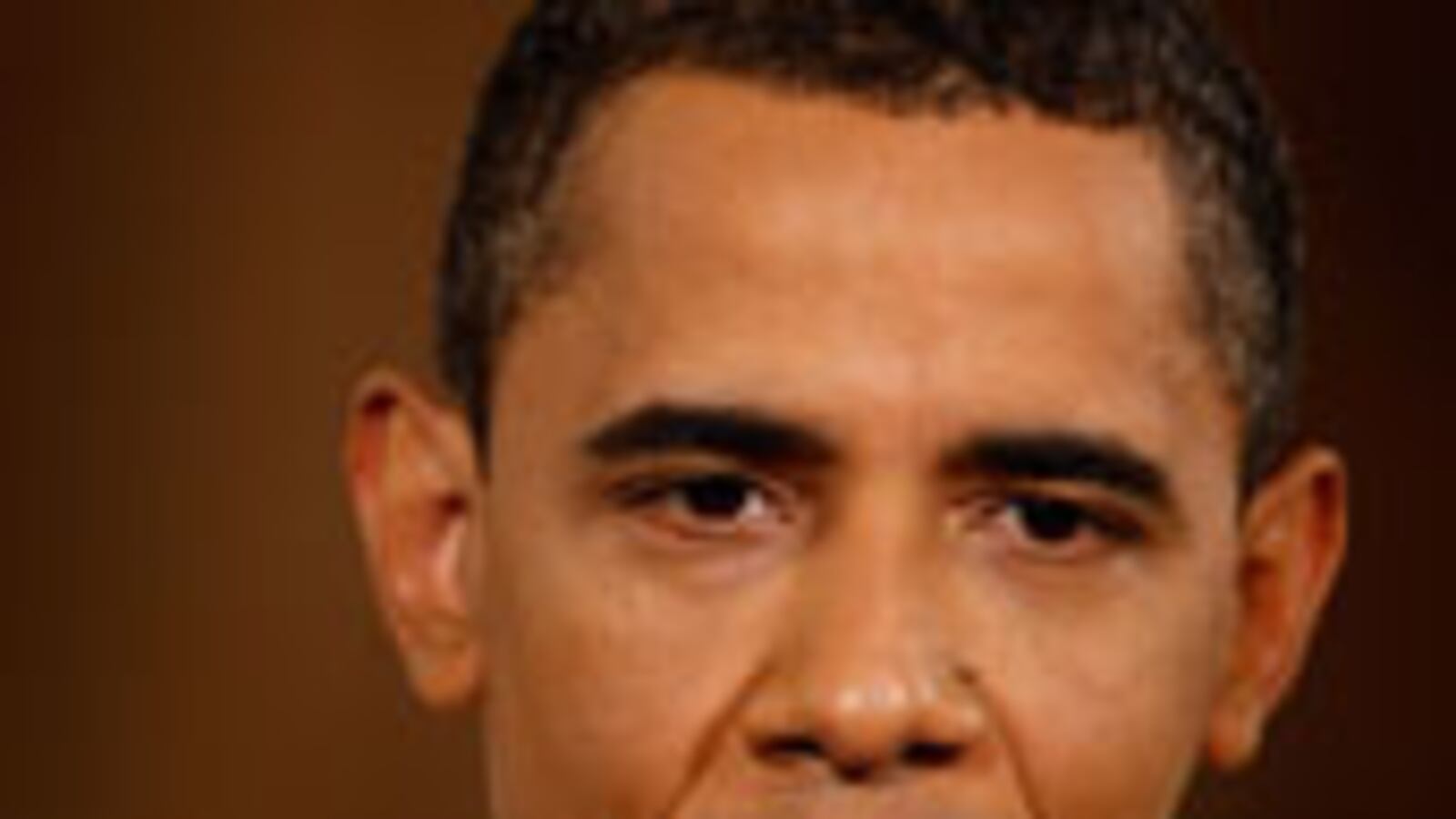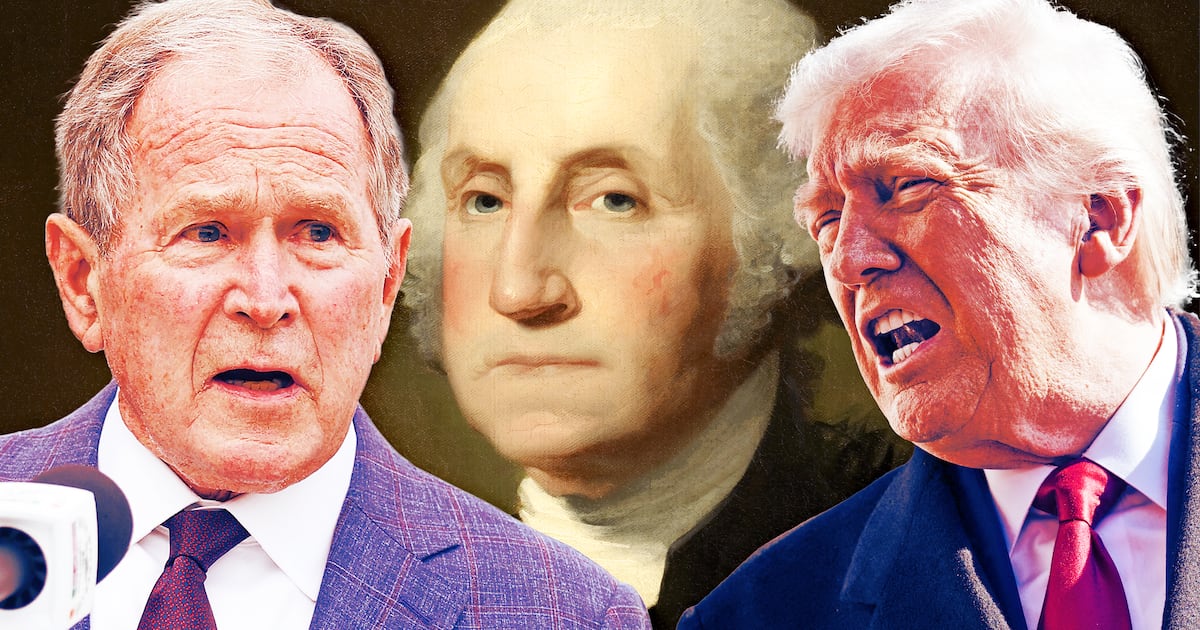
White America proved ready last fall to accept an African-American president. But in the eyes of some on the right, it was as if Barack Obama’s election meant that any talk of racial discrimination in America had to end. How else to explain the firestorm of controversy set off by the president of the United States offering the banal observation that there is "a long history" of "African-Americans and Latinos being stopped by law enforcement disproportionately," and that a police department that arrests a man inside his own home and winds up dropping the charges has acted “stupidly”? But as soon as the president spoke, the right wing pounced, smelling blood.
The Gates affair was the opening right-wingers used to pummel Obama with race-based attacks—to prove that America’s first post-racial presidency was anything but. On July 26, Fox's Brit Hume whined on air that "to be labeled a racist" in today's America is very bad, which has "placed into the hands of certain people a weapon" that can be wielded against poor, defenseless white America. One might think that the existence of social opprobrium against racists was a good thing and certainly an improvement from the recent past in which such opprobrium was directed at interracial couples and it was commonly impossible for Southern blacks to vote.
Since the campaign ended, we’ve been seeing the extreme racial paranoia that has characterized the American right for decades.
Either way, run-amok anti-racism doesn't seem to have stopped Hume's Fox News colleague Glenn Beck, who opined on July 28 that Obama had "exposed himself as a guy" with a "deep-seated hatred for white people or white culture."
Given that the roster of white people in Obama's life includes his mother, his vice president, his chief of staff, his chief political aide, the majority of his Cabinet, etc., the hatred strikes me as unlikely to be all that deep-seated. Rather, as with the absurd campaign by Newt Gingrich and others to brand Judge Sonia Sotomayor a "Latina woman racist," we're seeing the extreme racial paranoia that has characterized the American right for decades.
These sentiments long predate Obama's rise to the White House or any particular actions on his part. Popular conservative talk-radio host Michael Savage self-published a 1991 book called The Death of the White Male at a time when there wasn't so much as a black member of the United States Senate. But it's perhaps not surprising that America's first African-American president would prompt an outburst of racial anxiety and racist attacks. Indeed, many observers were expecting more of this sort of thing during the campaign. That it's only emerging in a big way now illustrates the paucity of appealing political leaders on the contemporary American right. During the presidential campaign, John McCain himself was, for obvious reasons, the most prominent face of American conservatism. And McCain was a practical politician looking to appeal to a majority. He was also a quite popular figure, whose approval rating remained over 50 percent even as he ultimately lost the election to an even-more-popular Obama. Under the circumstances, he had strong incentives to avoid the sort of hyper-ugly rhetoric that could easily prompt a backlash.
Today, though, Republican congressional leaders are gray nonentities like Rep. John Boehner and Sen. Mitch McConnell. That leaves the right wing's public presentation dominated by Fox News personalities, and the likes of Gingrich and Michelle Malkin, who recently dubbed Obama a "racial opportunist." Such figures aren't trying to build a viable electoral coalition; they're just competing for the intense devotion of a narrow segment of the conservative base. You can have a hit cable show with only a trivial fraction of the overall population watching, and you raise funds for your political organization by attracting a relatively small number of devoted followers. And a certain segment thrills to this sort of rhetoric.
Unfortunately, the willingness of prominent media figures to indulge in wild attacks on Obama seems to be spurring a rising tide of dubious ideas among the population at large. This can perhaps be most clearly seen in the popularity of "birther" conspiracy theories which hold that Obama was not, in fact, born in the United States of America. The idea is that a vast conspiracy has been perpetrated since Obama's infancy to get around the constitutional requirement that the president of the United States be a "natural born citizen" of the country. Nevermind how strange it would have been for Obama's parents to simply assume in the early 1960s (when interracial marriages were generally illegal and Jim Crow still reigned) that an obscure constitutional provision was the main impediment to Obama ascending to the White House. Also nevermind that most experts believe Obama would, in fact, qualify as a natural-born citizen even if he had been born in Indonesia or Kenya. Nor are hotbeds of conspiracy-mongering impressed by the fact that the Hawaii Department of Health has verified the authenticity of Obama's birth or that the Honolulu Advertiser ran a notice of Obama's birth. If this were left to the likes of World Net Daily, it might not matter very much. But the fringe has been fed by CNN's Lou Dobbs and National Review's Andy McCarthy, while Jonah Goldberg, another National Review pundit, sees no reason Beck should apologize for saying that the president is driven by hatred of white people.
The impact of this indulgence on public opinion is visible. A recent Research 2000 poll revealed that 23 percent of the public is uncertain as to whether or not Obama was born in the United States, with just 42 percent of Republicans willing to aver that he was born where he says he was. And lest anyone doubt the linkage between racial issues and "birther" conspiracies, note that belief in the theory is heavily concentrated among white people and Southerners. Indeed, the Washington Independent's Dave Weigel has calculated that "as many as three-quarters of Southern whites told pollsters that they didn't know where Obama was born."
This is an audience that's too large for the less scrupulous on the right wing to simply ignore. But McCain and his strategists were probably right in the first place to think that this material is too toxic to be worth touching. That probably explains why in recent weeks Republican Party identification has gone down, despite Obama's declining job-approval numbers. As long as economic woes continue, the opposition should have a good opening, but increasing levels of racially tinged hysteria doesn't seem to be the way to exploit it.
Matthew Yglesias is a fellow at the Center for American Progress Action Fund. He is the author of Heads in the Sand: How the Republicans Screw Up Foreign Policy and Foreign Policy Screws Up the Democrats.






